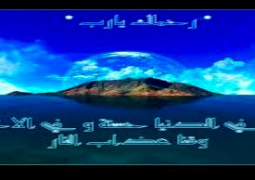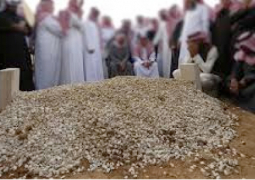When Abu Humaid described the prayer of the Prophet, upon whom be peace, he said, “When he sat after two rak’ah, he would sit upon his left leg and keep his right foot upright. Whenå he sat for the last rak’ah, he would pull over his left foot and put his right foot upright (over the left foot) and sit upon his entire posterior.” (Related by al-Bukhari.)
Most scholars say that the first Tashahud is Sunnah
This is based on the hadith of ‘Abdullah ibn Buhainah who reported that once the Prophet stood during the noon prayer when he should have sat (for the first tashahud). When he finished the prayer, he made two prostrations. He made a takbir for each prostration (and it was) while he was sitting before he made the tasleem. He made those two prostrations because he had forgotten to sit (for the first tashahud). (Related by “the group.”)
In Subul as-Salaam, it is stated that this hadith proves that one who forgets the first tashah ud must make the prostrations of forgetfulness. The Prophet is, however, reported to have said, “Pray as you have seen me pray.” This would point to the first tashahud being obligatory, and one would have to do some act to make up for it. But, this also proves that it is not obligatory, for if one misses an act that is obligatory, the two prostrations of forgetfulness are not sufficient to make up for it. That is what Ibn Hajr says in Fath al-Bari.
Says Ibn Batal, “The proof is that the two prostrations due to forgetfulness cannot replace something that is obligatory. If one forgets the opening takbir, they will not replace it. In the case of the tashahud, it is a remembrance that is not said aloud and it is not obligatory.” Some say otherwise, because the Prophet used to perform it and, as such, he let others follow him in performing it after he found out that they were leaving it intentionally. But there is some doubt about this argument. Those who say that it is obligatory include al-Laith Ibn Sa’d, Ishaq, ash-Shaf’i and the Hanafiyyah. At-Tabari argues that it is obligatory because originally only two rak’ah and the tashahud were obligatory. When they were made longer, the original obligations were not done away with. Therefore, it is still obligatory.
It is preferred to make the first tashahud quickly
Reported Ibn Mas’ud, “When the Prophet sat after the first two rak’ah, it seemed as if he was (sitting) on hot stones.” This is related by Ahmad, Abu Dawud, an-Nasa’i, at-Tirmizhi and Ibn Majah. At-Tirmizhi grades it as Hassan and says, ‘Ubaidah (ibn ‘Abdullah ibn Mas’ud) did not hear (hadith) from his father. He also says, “The scholars act according to this hadith. They prefer that one should not sit too long after the first two rak’ah, and that he should not add anything to the tashahud.”
Says Ibn al-Qayyim, “It is not reported from the Prophet that he would say prayers upon himself or his family during the first tashahud. Nor would he seek refuge from the torment of the grave or the Hellfire, or from the test of life, death and of the false Messiah. Those who say such supplications are deducing their arguments from the general application (of the supplications and the word tashahud), but the correct position is that their proper place is in the last tashahud.
Sunnah acts of prayer, Prayers upon the Prophet, Upon Whom Be Peace
In the last tashahud, it is preferred for the person to say prayers upon the Prophet in one of the following manners:
- Reported Mas’ud al-Badri, “Basheer ibn Sa’d said, ‘O Messenger of Allah, we have been ordered to make prayers upon you. How are we to do it?’ The Prophet was quiet and then said, ‘Say, O Allah, shower blessings upon Muhammad and upon the family of Muhammad as you showered blessings upon the family of Abraham. And grant favors to Muhammad and to the family of Muhammad as you granted favors to the family of Abraham in this world. You are the Praiseworthy and Glorious.’ And make the salutations as I have taught you.” (Related by Muslim and Ahmad.)
- Reported Ka’b ibn ‘Ajazah, “We said, ‘O Messenger of Allah, show us how we are to make salutations and prayers upon you.’ He said, ‘Say, O Allah, shower blessings upon Muhammad and upon the family of Muhammad as you have showered blessings upon the family of Abraham. You are the Praiseworthy, the Glorious. O Allah. grant favors to Muhammad and the family of Muhammad as you granted favors to the family of Abraham.’’
The salutations upon the Prophet, upon whom be peace, is a preferred act and is not obligatory. This contention is based on a hadith recorded by at-Tirmizhi (who said it is sahih), Ahmad and Abu Dawud from Fizhalah ibn ‘Ubaid who said, “The Messenger of Allah heard a man supplicating in his prayer and he did not make the prayers on the Prophet. The Prophet said, ‘He has hastened.’
Then he called him and said, ‘When one of you prays, begin with the praise and lauding of Allah. Then make prayers upon the Prophet, and supplicate whatever you wish of Allah.” The author of al-Muntaqi says, “This is a proof for those who say that the prayers upon the Prophet are not obligatory, because he did not order the one who did not do it to repeat his prayer. This is supported by his statement to Ibn Mas’ud, after mentioning (only) the tashahud, ‘Then choose whatever you wish to ask (of Allah).” In his comments on this hadith, ash-Shaukani observes, “In my opinion, there is no confirmed proof that it is obligatory.”
Sunnah acts of prayer, Supplications After the Last Tashahud and Before the Tasleem
It is preferred for the person to supplicate after the final tashahud and before making the final salutations (that end the prayer). The person may ask for whatever he wishes of the good of this life and the hereafter. Ibn Mas’ud reported that the Prophet, upon whom be peace, taught him the tashahud and then said, “Then choose whatever you wish to ask (of Allah).” (Related by Muslim.)
Supplications are preferred acts in general, regardless of whether they are reported from the Prophet or not, although supplications authenticated by the sunnah are better. Some of these are:
- Abu Hurairah reported that the Messenger of Allah, upon whom be peace, said, “When one of you finishes the final tashahud, he should say, ‘O Allah, I seek refuge in You from the torment of the Hellfire and the grave, from the trials of life and death, and from the trials of the false Messiah.” (Related by Muslim.)
- ‘Aishah reported that the Messenger of Allah would supplicate in his prayer, “O Allah, I seek refuge in You from the torment of the grave, from the trials of the anti-Christ, and from the trials of life and death. Allah, I seek refuge in You from sin and debt.” (Related by Muslim and al-Bukhari.)
- ‘Ali reported that when the Prophet prayed, the last thing he would say between the tashahud and the tasleem was, “O Allah, forgive my past and later sins, what was in private and what was in public, and what I have been extravagant in. You are more knowledgeable of it than I. You are the Promoter and the Retarder. There is no god except You.” (Related by Muslim.)
- ‘Abdullah ibn ‘Amr reported that Abu Bakr said to the Messenger of Allah, “Teach me a supplication that I may use in my prayers.” He told him, “Say, O Allah, I have wronged my soul a great wrong and no one forgives sins except You, so forgive me with such forgiveness that only comes from You and have mercy on me. Verily, You are the Oft-Forgiving, the Oft-Mercful.” (Related by al-Bukhari and Muslim.)
- Hanzhalah ibn ‘Ali said that Muhjan ibn al-Adra’ related to him that the Prophet entered the mosque while a man was just about to finish his prayer. The latter made the tashahud and said, “O Allah, I am asking You, O Allah, the One, the Only, the Absolute, who begets nor is begotten, nor is anyone like Him, to forgive my sins, for You are the Forgiving, the Merciful.” The Prophet then said three times, “He has been forgiven.” (Related by Ahmad and Abu Dawud.)
- Shaddad ibn Aus reported that during his prayer, the Prophet would say, “O Allah, I ask You to confirm me in the affairs, to keep me on the correct path, to make me thankful for your blessings and excellent in Your worship. O Allah, I ask You for a tranquil heart and truthful tongue. O Allah, I ask You for the good of what You know, and I seek refuge in You from the evil of which you are aware, and I ask Your forgiveness from what You know.” (Related by an-Nasa’i.)
- Said Abu Mijlaz, “ ‘Ammar ibn Yasar led us in the prayer and he made it very short. The people blamed him for that and he told them, ‘Did I not complete my bowings and prostrations ... and did I not supplicate therein what the Prophet used to supplicate, saying, ‘O Allah by Your knowledge of the unseen and Your power over the creation, let me live if You know that living is best for me, and let me die if You know that dying is better for me. I ask You (to forgive me) for fear of You in what is not seen and what is seen, to make my speech truthful while angry or pleased, and to have the same aim in poverty and riches. Grant me the pleasure of looking to Your face and of the longing to meet You. I seek refuge in You from a harmful loss and from the trials of a misguider. O Allah, embellish me with the beauty of faith, and make us of the guided of the guiders.” This is related by Ahmad and an-Nasa’i with a good chain.
- Abu Saleh related from one of the companions that the Prophet said to a man, “What do you say in your prayer?” He said, “I say the tashahud and then I say, ‘O Allah, I ask of you Paradise and seek refuge in You from Hell-fire.’ But I cannot murmer as good as you or Mu’azh (as eloquent as you are).” The Prophet said, “We ask concerning Paradise and the Hell-fire.” (Related by Ahmad and Abu Dawud.)
- Ibn Mas’ud reported that the Prophet taught him to say this supplication: “O Allah, bring our hearts together and make our relations good. Guide us to the paths of peace and bring us out of the darkness and into the light. Keep us away from lewdness, both hidden and open. O Allah, bless us in our hearing and our sight, in our hearts, our wives and our offspring. Turn unto us, for You are the Oft-Turning, the Oft-Merciful. Make us thankful for Your blessings and complete it upon us.” (Related by Ahmad and Abu Dawud.)
To be continued




